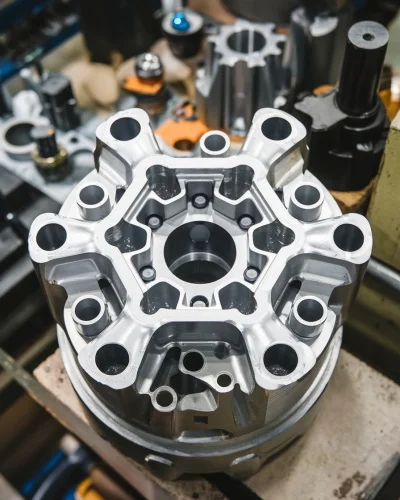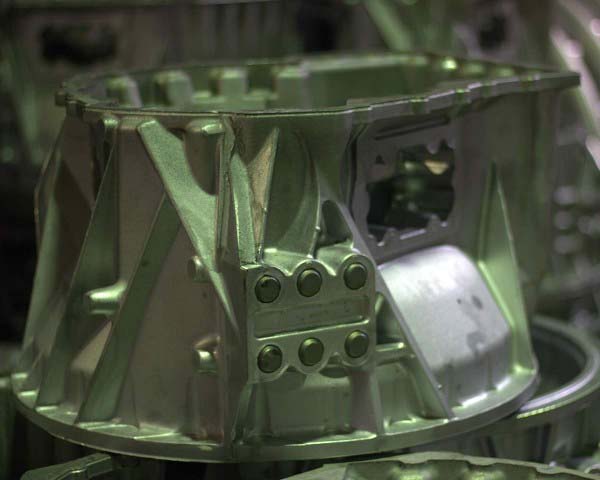Precision aluminum casting techniques that minimize waste and maximize production efficiency
A Comprehensive Guide to Choosing the Right Factory Providers for Your Job Needs
Picking the best foundry solutions is necessary for the success of any type of job. Each casting technique-- sand spreading, financial investment spreading, and die casting-- has unique benefits. Understanding these alternatives helps in making notified decisions. Product option, production capacities, and quality control are key variables to take into consideration. Furthermore, assessing costs can affect long-term stability. Aluminum Casting Company. What variables should lead this decision-making process?
Understanding the Different Kinds Of Factory Services
While the globe of shop solutions may seem complex at first look, recognizing the different types can greatly improve the manufacturing procedure. Factories generally focus on casting metals, and the major types consist of sand spreading, investment spreading, pass away casting, and centrifugal casting.
Sand spreading includes creating mold and mildews from sand and is suitable for big elements or low-volume manufacturing. Investment spreading, on the other hand, uses high precision for detailed styles, making it suitable for aerospace or medical applications. Die spreading, defined forcibly liquified metal into mold and mildews under high stress, is reliable for automation of smaller parts.
Centrifugal spreading makes use of rotational force to distribute liquified metal, generating strong, cylindrical elements. Each service type is and has unique benefits chosen based upon particular project needs. Comprehending these differences permits suppliers to pick one of the most appropriate foundry solution, ultimately improving effectiveness and item high quality.
Trick Elements to Take Into Consideration in Product Choice
Selecting the suitable product for shop services is an essential action that influences the general success of a task. Key variables in product option include mechanical residential or commercial properties, thermal resistance, and rust resistance - Precision aluminum casting. Recognizing the intended application and its needs is important; materials should hold up against operational tensions while preserving stability with time
An additional important consideration is the product's compatibility with the chosen production procedure, as some products are much better suited for certain strategies. Cost-effectiveness also plays a substantial function, as spending plan constraints can limit choices.

Finally, schedule and lead times of materials can impact task timelines, making it necessary for task managers to evaluate these variables thoroughly. By very carefully assessing these elements, one can assure a more effective and reliable factory solution experience.
Examining Manufacturing Capacities and Technologies
How successfully a shop can fulfill task specs rests on its manufacturing capacities and innovations. An extensive evaluation of these elements is vital for project success. Production abilities encompass the factory's capacity to manage differing project complexities, timelines, and sizes. Understanding the shop's tools and machinery is important, as contemporary innovations such as computer system mathematical control (CNC) machining and progressed mold-making techniques can greatly improve accuracy and performance.
Additionally, the foundry's use cutting-edge products and procedures, such as 3D printing or shed foam spreading, can supply benefits concerning layout versatility and cost-effectiveness. It is also essential to examine the shop's capacity to scale manufacturing, ensuring that they can suit future rises sought after without jeopardizing high quality. By meticulously assessing these aspects, task managers can make informed decisions regarding which factory is ideal matched to meet their specific production demands and technical expectations.
Value of Quality Assurance in Metal Spreading
Quality control stands as an important column in the steel spreading sector, guaranteeing that every component meets strict requirements and criteria. This procedure entails organized tracking and evaluation of each phase of manufacturing, from preliminary design to final examination. Carrying out strenuous quality guarantee methods enhances the reliability and performance of actors parts, decreasing the probability of problems that can jeopardize architectural honesty.
In addition, efficient quality control promotes trust fund between factories and customers, as adherence to high standards represents commitment to quality. It additionally decreases pricey rework and delays, simplifying manufacturing processes. By recognizing possible problems early, quality assurance not only safeguards the end product yet likewise adds to continuous enhancement within the factory's operations. Inevitably, focusing on high quality assurance in metal casting is crucial for achieving client satisfaction and maintaining an affordable side in the industry.
Examining Cost-Effectiveness and Spending Plan Constraints
While traversing the intricacies of factory services, examining cost-effectiveness and spending plan restraints becomes an important variable for services. Recognizing the total expense of ownership includes more than just the initial rate; it requires an analysis of lasting expenses, consisting of products, labor, and operational efficiencies. Firms should request thorough quotes that lay out all potential costs, allowing a more clear contrast between different factories.
Additionally, companies need to examine their certain project requirements against budget plan limitations. This consists my website of assessing the trade-offs in between reduced prices and potential influence on top quality, More Info lead times, and reliability. It is essential to take into consideration whether the picked factory supplies scalable remedies that can fit future requirements without considerable monetary stress. By thoroughly balancing price factors with job goals, business can make enlightened choices that maximize both budget plan and efficiency, making sure successful outcomes for their factory jobs.
Often Asked Concerns
How Can I Make Certain Timely Delivery of My Factory Job?

What Accreditations Should a Factory Solution Provider Have?
A trustworthy shop provider must have qualifications such as ISO 9001 for high quality management, ISO 14001 for environmental administration, and industry-specific accreditations that demonstrate compliance with safety and performance criteria pertinent to the spreading procedure.
Can I See the Factory Before Deciding?
Yes, seeing the foundry prior to making a choice is typically suggested. This enables potential clients to evaluate the center, satisfy the team, and warranty that the services align with their details task needs and requirements.
What Is the Typical Lead Time for Custom Castings?
The typical lead time for customized spreadings varies from four to twelve weeks, depending on the complexity of the style, product specs, and the factory's capability. Prompt communication can commonly speed up the process.
Just How Do Foundries Take Care Of Design Adjustments Throughout Production?
Factories typically fit design changes throughout manufacturing by applying flexible procedures. They examine click for more the effect on timelines and prices, interact with customers, and change operations to assure quality while minimizing disruptions to the manufacturing schedule.
